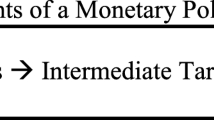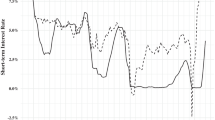Abstract
The significant progress in the reform of the financial sector, including the amendments to the banking law and the reinforcement of the deposit insurance scheme, has been reflected in increased confidence in the Macedonia banking sector. Monetary policy and exchange rates represent a crucial aspect for the countries of Southeast Europe which would like to position themselves on the threshold of negotiations on their accession to the European Union. In the case of Macedonia, which has already formally applied for EU membership, a very cautious approach has to be taken in order to facilitate the stability of the economic system as a whole. Such a policy will make an important contribution to the stabilization of the whole West Balkan area and in particular to the quadrangle of Albania, Kosovo, Montenegro, and Serbia. The preparation of a favourable ground for EU membership negotiations leads first and foremost through a strict monetary and exchange rate policy, which the National Bank is pursuing firmly. Macedonia is now facing optimal conditions for creating the prerequisites for a faster negotiation with less rigorous internal repercussions of the pre-adhesion period. One should not forget the indirect impact of the shadow economy in the general context of efficiency of the instruments of economic and monetary policy. Finally, there is the question to be answered on the interrelation existing between transmission mechanisms linking productivity to the real exchange rate in Macedonia. At first glance, the stylized facts – low labor productivity growth and a trend of real depreciation – could even suggest that a Balassa–Samuelson effect is in play. But the depreciation of the real exchange rate could reflect mainly the behaviour of prices in the tradable sector and a prolonged transition associated with slow technological growth and the low quality of the country's tradable-goods basket.
Similar content being viewed by others
Author information
Authors and Affiliations
Corresponding author
About this article
Cite this article
Dominese, G. How To Prepare the EU Integration: Banking System, Monetary Policy, and Exchange Rate in Macedonia. Transition Stud Rev 13, 378–392 (2006). https://doi.org/10.1007/s11300-006-0116-x
Issue Date:
DOI: https://doi.org/10.1007/s11300-006-0116-x




